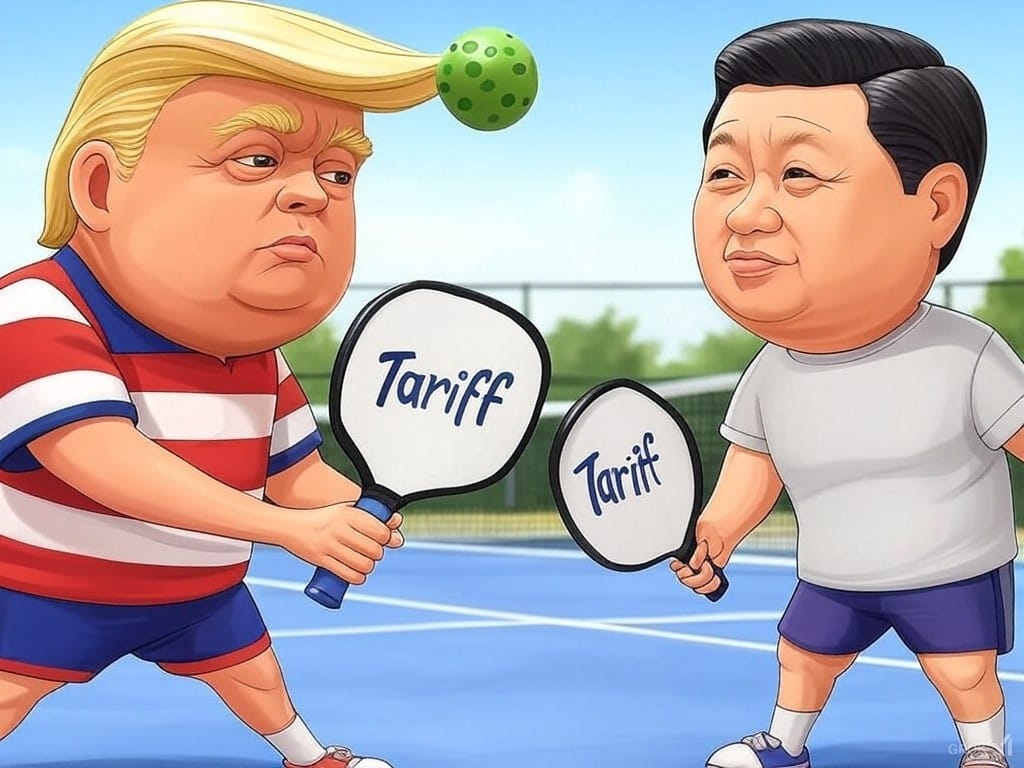- Shortlysts
- Posts
- China Announces Retaliatory US Measures After Trump's Tariffs Go Into Effect
China Announces Retaliatory US Measures After Trump's Tariffs Go Into Effect
China announced a series of retaliatory tariffs on the U.S. after President Trump issued a 10% levy on Chinese products to address the illegal drug flow along the border.

What Happened?
China announced a series of retaliatory tariffs on the U.S. just days after President Donald Trump issued a 10% levy on Chinese products.
The measures imposed by China’s Ministry of Finance include the levy of a 10% tariff on crude oil, agricultural machinery, and large-displacement vehicles such as pickup trucks.
A 15% tax on certain types of coal and liquefied natural gas and an antitrust investigation into Google was also introduced in retaliation toward the U.S.
These actions are set to take effect on Feb. 10.
President Trump reportedly planned to talk with Chinese President Xi Jinping in the coming days.
He previously held conversations with the leaders of Mexico and Canada, which resulted in a one-month pause on a 25% tariff levy.
The countries agreed to cooperate with various requested measures, such as immediately reinforcing the U.S. shared borders with 10,000 personnel members.
Mexican President Claudia Sheinbaum said Monday in a statement that she and President Trump had a good conversation with great respect for one another and each other's sovereignty.
Canadian Prime Minister Justin Trudeau said Monday that he and Trump also had a good phone call that resulted in Canada implementing its $1.3 billion border plan and a 'Canada-U.S. Strike Force.'
Both Prime Minister Trudeau and President Sheinbaum had initially announced U.S. retaliatory measures, before later reversing course.
Why it Matters
The Trump administration had also walked back its tariff threats against Colombia after the country reversed course to accept deported migrants.
Some experts reportedly believe that the antitrust Google investigation is likely to be used as a China bargaining chip around the U.S. company's Android operating system for smartphones.
Most brands apart from Apple and Huawei pay licensing fees to Google to use the Android system on their devices, according to the Associated Press.
'Now, this time, Google is put on the chopping board,' antitrust expert John Gong told the AP. 'I think it’s very much negotiable.'
'They've got to stop people from pouring into our country,' Trump told reporters over the weekend. 'And we have to stop fentanyl. And that includes China.'
Trump has included China in the blame for the illegal drug flow of fentanyl that has flooded into the U.S.
U.S. officials reportedly believe that a number of China-based entities supply precursor chemicals, which can be used by drug cartels to finish making fentanyl in labs.
Many worry about the impact a trade war with China would still have on American consumers.
Trump previously acknowledged there may be some short-term pain, 'but long term, the United States has been ripped off by virtually every country in the world.'
He has pointed to subsidies given to Canada and Mexico in the form of deficits as influential points in his decision.
As far as China, this isn’t the first round of back-and-forth between the two countries.
In 2018, China and the U.S. engaged in an escalating trade war when Trump repeatedly raised tariffs on Chinese goods during his first term.
China reportedly responded each time.
How it Affects You
Consumer prices are key focuses that Americans are hoping to be eased in the months to come without a trading war with partners like China.
Any major shake-up could result in lower GDP growth everywhere and increase U.S. inflation, experts say.
Trump hopes that countries like China can work with the U.S. on a common goal that addresses major concerns amid national security along the border.